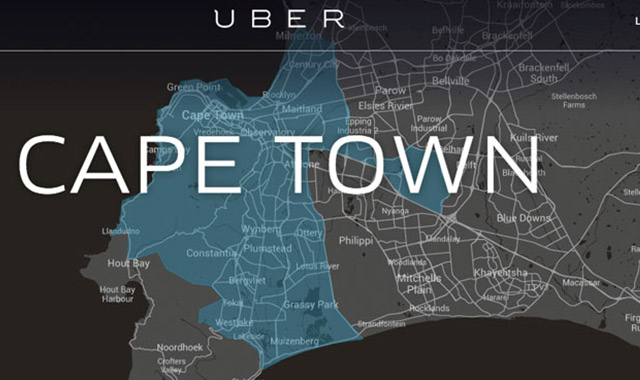
Uber is coming under increased pressure as trade union federation Cosatu is now taking aim at the Internet ride-sharing service.
Opposition to Uber has become evident among rival metered taxi drivers in Cape Town and Johannesburg amid claims that the Internet ride-sharing service is unfair competition.
Metered taxi drivers allege that Uber is not held to the same regulations as them.
Complicating the matter is that in Johannesburg Uber drivers are given chartered service licences while in Cape Town the internet service has to adhere to metered taxi licences.
Subsequently, metered taxi associations in Gauteng and the Western Cape have publicly expressed their opposition to Uber over the last week.
Now, Cosatu has hit out at Uber’s business model, which involves partnering with drivers. While not all Uber drivers own their cars, some of the Internet service’s drivers do have the option to own and drive their vehicle.
But Cosatu has particularly taken issue with regulation and wants Uber drivers to own the cars they drive as well.
“Cosatu opposes the attempts by Uber to try and take over the market by not complying with the required regulations. For Uber to want to enter the Cape Town market and undermine established business practices is unacceptable,” said Cosatu on Thursday evening.
“We will not allow a big company that owns the cars and denies the drivers the right to ownership to take over what was historically owner driver businesses. We want to stop these practices where white dominated companies have a monopoly over the industries.
“Cosatu demands that future taxi related industries be driver owned and that there is real empowerment through industries regulated by the state. Uber has a place in the industry in future, but not one where they own and control the cars and the drivers. The Western Cape must see real empowerment of the previously disadvantaged sectors of the society,” said Cosatu.
More than 200 Uber cars have been impounded in Cape Town this year because drivers of the internet service did not have the necessary metered taxi permits.
But on Thursday 145 Uber drivers were awarded metered taxi licences from Western Cape provincial authorities after a six month wait.
Uber has previously said that it is seeking a clear route to licensing for its service in the Western Cape. Premier of the Western Cape Helen Zille said in a newsletter this week that local and national government are considering e-hailing laws for internet ride-sharing services like Uber.
Demand for Uber has surged in South Africa with 2m rides being recorded this year so far, double that of 2014.
Uber also says it’s helping to create jobs in South Africa and that opposition to the service is a threat to this.
“Regulation in the Western Cape, aggressive intimidation and impoundments are threatening job creation and preventing our Uber partners from offering safe and reliable rides,” Uber said in a blog post last week.
Last week, Uber raised awareness over its permit problems in Cape Town by holding an online petition that notched up over 13 000 signatures of support for the service. — Fin24

